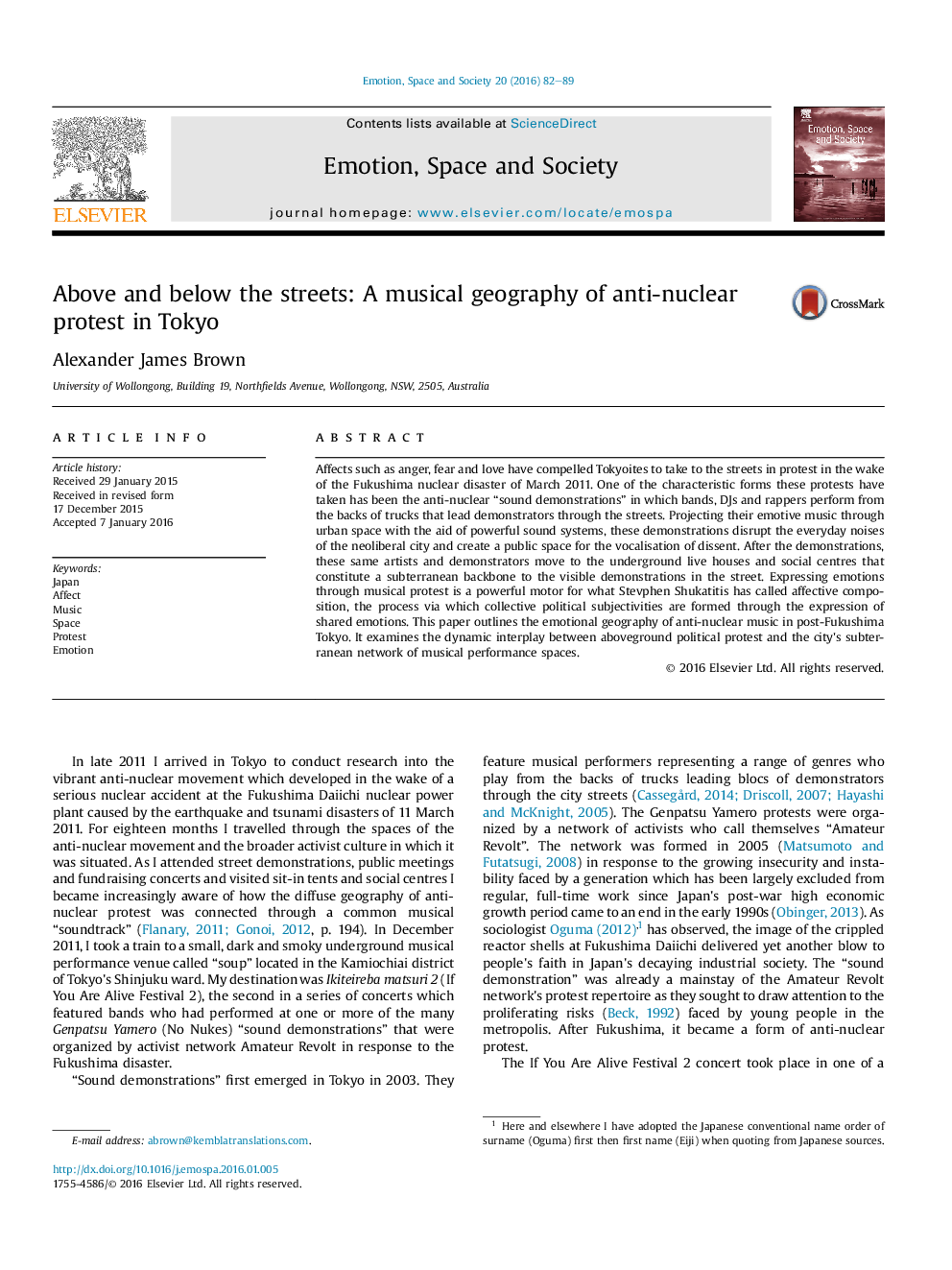| Article ID | Journal | Published Year | Pages | File Type |
|---|---|---|---|---|
| 946586 | Emotion, Space and Society | 2016 | 8 Pages |
Affects such as anger, fear and love have compelled Tokyoites to take to the streets in protest in the wake of the Fukushima nuclear disaster of March 2011. One of the characteristic forms these protests have taken has been the anti-nuclear “sound demonstrations” in which bands, DJs and rappers perform from the backs of trucks that lead demonstrators through the streets. Projecting their emotive music through urban space with the aid of powerful sound systems, these demonstrations disrupt the everyday noises of the neoliberal city and create a public space for the vocalisation of dissent. After the demonstrations, these same artists and demonstrators move to the underground live houses and social centres that constitute a subterranean backbone to the visible demonstrations in the street. Expressing emotions through musical protest is a powerful motor for what Stevphen Shukatitis has called affective composition, the process via which collective political subjectivities are formed through the expression of shared emotions. This paper outlines the emotional geography of anti-nuclear music in post-Fukushima Tokyo. It examines the dynamic interplay between aboveground political protest and the city's subterranean network of musical performance spaces.
